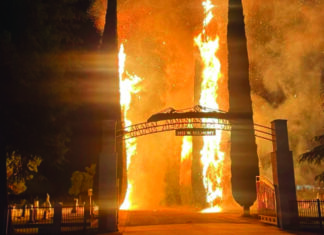By Israel W. Charny
Clearly, our hearts and minds are deeply concerned with the murdering hells of war crimes or crimes against humanity — that in my professional language as a genocide scholar are one of the several subtypes of genocide — that Putin’s Russia is committing. But at the same time, some of our attention deserves to be saved for the issues of other peoples’ welfare as well, and that includes the ways we extend respect to past events of genocide, such as the Armenian Genocide, whose official day of remembrance is April 24. (This was the day in 1915 the Turks rounded up some 250 leaders of every aspect of Armenian culture and executed almost all of them.)
Quite obviously, Israel has been refraining these many years from officially recognizing the Armenian Genocide out of an effort not to excite the fury and retaliation of Turkey. The Turks have persisted in their bizarre denials of the factual history of the Armenian Genocide through all these years, and are known to have devoted literally millions of dollars to campaigns of censorship and cancellations of reports, articles, books, professional congresses, art exhibits, and even musical events that in one way or another were intended to express pain and caring about the Armenian Genocide.
In Turkey, an easy one-way ticket to jail has been to bring up the subject of the Armenian Genocide prominently — although strangely there also grew a generation of brave intellectuals and artists who managed to get across the memory of the slaughter of the Armenian people and survived, though a good many of them had to go through painful legal trials of charges of insulting the government, and the ones who survived came at the expense of periods of being in jail. Obviously, the Turks took the subject terribly seriously. One might say that it was the Turkish version of the American taboo of cussing the other guy’s mother — in the age when to say that to a good old American marine was an established one-way ticket for getting yourself slugged — in Turkey you went to jail if you talked of a genocide.
So, big grown-up countries — like the United States and I think Israel deserves to be characterized in this way, too — have been scared from getting involved with Turkish sensitivity. Writing in the Times of Israel, Lazar Berman notes, “Many countries have refrained from recognizing the genocide out of fear of the Turkish response, which often involves recalling its ambassador for a period of time. That was Ankara’s reaction in 2011 when the French National Assembly passed a bill making it illegal to deny the Armenian Genocide. It also recalled its ambassador to the Vatican when Pope Francis used the word genocide during a 2015 mass marking the 100th anniversary of the slaughter, and its ambassador to Germany after the Bundestag passed a resolution calling the murder of Armenians a genocide in 2016.”
Happily, author Berman nonetheless was of the opinion that Turkey likely would not take any steps against the US for its recognition, and that has proven to be the case. In fact, even in earlier years when Turkey was far less stressed, economically and politically, than it is today, its characteristic modus operandi has been to react with a torrent of invectives and threats, including concrete announcements that it would cancel major economic relationships, and in some cases seemed to go about implementing their threatened repercussions, but then, quite consistently, withdrew from retaliating and resumed essentially complete relationships.









